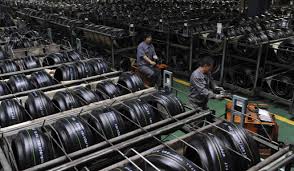
Mar 2, 2018
Nine years ago it was car tyres followed by chicken feet. Now it’s washing machines and solar panels followed by sorghum. Aluminium and steel may soon be tossed in the mix.
The familiar trade skirmishes between the United States and China usually end with a whimper. But American presidents have traditionally been like the proverbial cartoon character who gets dropped off a cliff, run over with a steam roller and blown up with dynamite; he gets up, arches an angry eyebrow and declares: “Next time, I’m going to get really mad!”
Is the “next time” finally here in the US versus China trade dispute? Is President Donald Trump about to get really mad and launch new trade actions against China? Will the administration really start rejecting more Chinese commercial deals in the US on national security grounds? And will Beijing retaliate with an all out global trade war? Don’t count on it.
For all the huffing and puffing, it’s good first to remember that we’ve actually been here before.
New presidents always come into office promising to get tough on China’s unfair trade practices, usually after making pledges to working class constituencies in rust belt states like Pennsylvania, Ohio and Michigan. President George W. Bush imposed 30 per cent tariffs on imported steel in 2002, a sop to the steelworkers union, but got slapped back by the World Trade Organisation the following year. President Barack Obama, following through on a pledge to his autoworker supporters, in 2009 imposed tariffs on Chinese imported tyres, 35 per cent the first year and 30 per cent the second year.
The Obama tyre tariffs are instructive because they illustrate the Chinese government’s keen instinct for finding just the right retaliatory target. In that case, China chose American chicken feet, accusing US poultry farmers of dumping the paws onto the Chinese market. Suddenly plump juicy chicken feet imported from America – a trade worth some US$278 million in 2009 – virtually collapsed. By 2011, America’s poultry farmers had lost an estimated US$1 billion in business and were crying foul.
So China’s trade officials recognise that a well-targeted retaliatory strike, particularly in the agriculture sector where the US actually enjoys a surplus with China, is far more effective than carpet bombing in a full-fledged trade war. That is what makes the choice of sorghum wickedly ingenious.
The US now sends China about US$1billon a year worth of sorghum, the grain used to make gut-busting baiju alcohol. And in the US, much of the sorghum comes from places like Texas, Kansas and Oklahoma – all states handily won by Trump in the 2016 election. It’s almost as if the Chinese leadership keeps a 2016 electoral college map pinned to the wall in Zhongnanhai.
Agency










